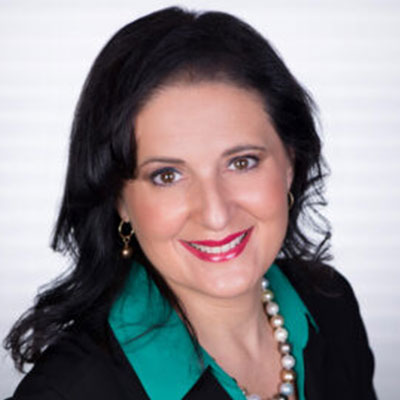Stereotypes are, in a word, problematic. To put a label on a person or group of people who are assumed to share one characteristic is not only elitist, but downright dehumanizing.
Racial prejudice is a plague on our country—one we hope to see diminish in our lifetime. But for the sake of this article, we’re talking about more “innocent” stereotyping, the kind that can sneak by if we aren’t vigilant: It’s “girls suck at math” and “men are so insensitive,” to more derogatory slang.
It’s easy to laugh about someone who has a different body type than you, or to rant about “the lazy unemployed,” when you have never been subjected to those challenges or that judgment. While we may say these things without malice, we can do better by learning how to recognize and stop using language with derogatory origins, meanings, or connotations. Especially in business.
So … what’s the answer? One word: Empathy.
Being able to empathize means being capable of understanding another person’s feelings without having experienced them for yourself. It is the ability to bear witness of the world from another person’s perspective; to walk in their shoes and to imagine what it feels like to have that experience.
The way we use language influences the way we see people and the way people feel. A fact that was readily evident in the stories we received from friends in our local community. They share their personal experiences of stereotyping in an effort expand the conversation, so that maybe, just maybe, we can make a commitment to do better in our daily interactions.

Rachel DeSando
Speech for Life Therapy, on the In-Person Bias
Therapy is our passion, kids love technology, and our treatment is creatively unique to each child. However, as a 90% virtual business we have had to overcome the stereotype that virtual learning is boring, ineffective, and leads to more work for the parents.
I’ve had many people call to inquire about therapy, but when I say it’s virtual, they cancel the complimentary consultation before even giving it a try. Thanks to the pandemic experience, many people think that virtual doesn’t work, but we aren’t public school. We carefully select topics, rewards, games, and crafts that your child loves to capture their attention and inspire their progress. The people who have given us a try love it, but we do have a much-larger stigma to overcome, thanks to COVID.

Savanna Westwood
The Savvy Sitter, on Career Elitism
One of the issues I experience is having to explain that my business is a legitimate career. To this day, many people consider pet sitting and dog walking to be a side job, or an odd job for teenagers. I can’t tell you how many people say, “You do this full time?” or “Don’t you have a real job?” There’s always this undertone of disbelief, or even derision. But here’s the thing: My business turned 6 years old in June, and my schedule is full. So I’ve found the best way to deal the negative feedback is to simply share my success. When they can’t get on to the calendar because it’s full, they figure out that The Savvy Sitter is legit pretty quickly

Rachel Siegel
Go Figure Accounting, on Classism
I can’t tell you how many times in the last few months I’ve been involved in or overhead conversations where someone or something was referred to as ‘trailer trash.’ For years, I just let it slide, but as a business owner, I felt it was time to raise my voice.
I grew up in a trailer park. My family was poor, but we were loved. We were taught the value of education and were highly influenced by our grandparents and aunts to work hard and dream big. We were surrounded by good people who, perhaps, had fallen on hard times, or simply chose a more affordable way to live. It wasn’t for us to judge why. We simply took our neighbors and all the people we encountered and interacted with at face value. And we forged our way ahead. My brother and I work incredibly hard, and we are both running successful businesses. Having met either one of us, no one would imagine calling either of us ‘trailer trash.’ But why is that even a thing? Why do we feel the need to dehumanize an entire group of people because of where they live? We can do better.

Gina Rubel
Furia Rubel Communications, on ethnic stereotyping
I never appreciated the stereotypes and slurs used against Italians and Italian Americans. As the grandchild of immigrants who were persecuted because of where they were born, derogatory words do nothing to perpetuate the positive influences our heritage has contributed to the world. The same holds true for covert language that does nothing to elevate or even equalize members of minority communities. It is up to each of us to do better.

Francisco Nieves-Taranto
RentCare Property Management, on Ageism
Green behind the ears. Newb. Gumby. All terms used to describe and diminish young professionals with new or little experience.
My personal experience goes back to 1993 when I was 24 years old and fresh out of real estate school. No experience, no center of influence in Central Florida, and no money. Every listing and management appointment, I had to battle with seasoned brokers and at my young age, people used to treat me like a kid. I had to work twice as hard to prove myself and prove to others that age is not an impediment. That as a REALTOR and property manager representing my clients, I would be firm enough to engage in negotiations, make assertive arguments, and maintain positive landlord/tenant relations. What did it take? It took hustle, determination, and perseverance.
Would it have been easier if I did not have to overcome the stereotype? Yes, but I think it helped me build work ethics and character, and tremendous respect for those in the same situation. That is why mentorship is a top priority for me today.”

